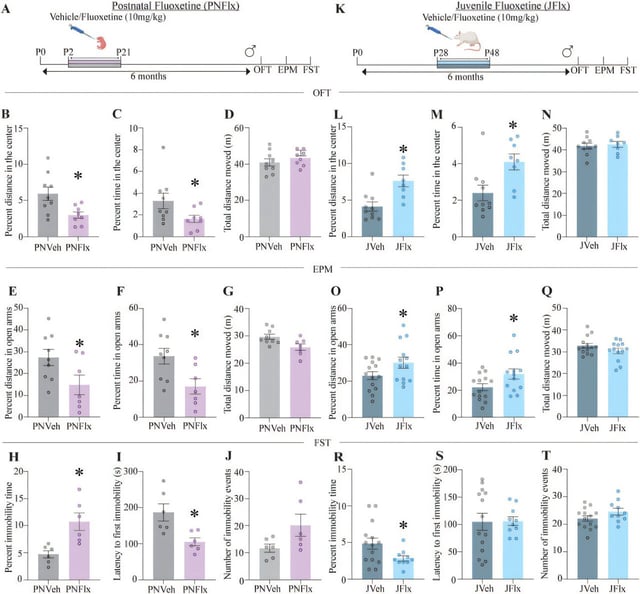Overview
- Early postnatal fluoxetine exposure (P2–P21) in male rats led to persistent increases in anxiety- and depression-like behaviors in adulthood.
- Adolescent fluoxetine treatment (P28–P48) in male rats produced opposite outcomes, reducing anxiety- and depression-like behaviors six months later.
- Divergent mood effects corresponded with distinct changes in gene expression, neuronal architecture, and bioenergetic levels in the medial prefrontal cortex.
- Adult-onset nicotinamide (vitamin B3) supplementation restored prefrontal bioenergetics and reversed depressive behaviors induced by early-life fluoxetine.
- Researchers are calling for translational studies to identify sensitive developmental windows in humans and inform pediatric SSRI prescribing strategies.

